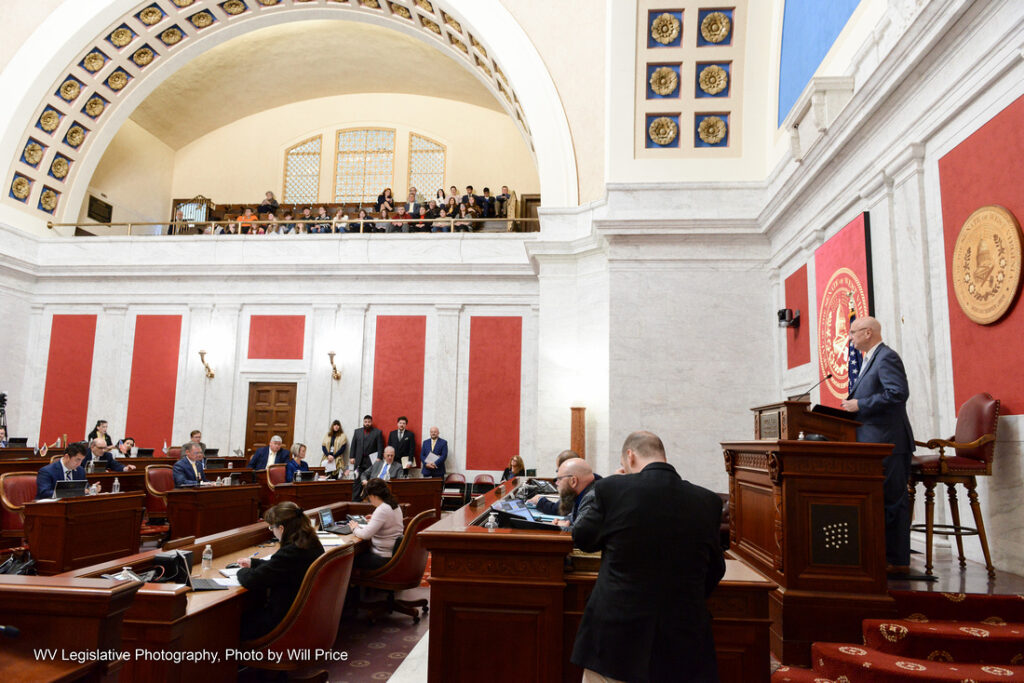The Senate did not slow down Tuesday, passing another 10 bills ranging on topics from energy to education and public employee retirement.
Senate Bill 160 would establish the West Virginia Rail Trails Program to acquire and develop abandoned railroad rights-of-way for interim use as public, non-motorized recreational trails.
Senate Bill 166 increases the amount retired public employees can earn in a year without suspending their retirement annuity. Sen. Eric Nelson, R-Kanawha, said the amount will need to be reviewed every five years, and does not impact the state’s other retirement funds.
“This bill will raise the minimum amount up to $25,000, which in essence reflects half or the average salary that employees in PERS system are currently earning,” Nelson said. “The bill only affects retirements in the Public Employees Retirement System. It does not have any effect on employees working part-time there in the Teachers Retirement System.”
Lawmakers have discussed encouraging retirees to return to work to help shore up some of the state’s labor shortfalls. The bill passed unanimously without debate.
Three bills originating from the Senate Education Committee also passed, including:
- Senate Bill 428 which would create new requirements for local school improvement councils, including the publication of meeting minutes.
Senate Bill 306, establishes the Summer Feeding for All Program to study statewide efforts to feed students when they are out of school. Sen. Mike Woelfel, D-Cabell, stood in support of the bill.
“Childhood hunger is very real in America and it’s certainly very real in West Virginia,” he said. “There will be an opportunity for each county to learn from different counties and ensure that there are no pockets of hunger for children during the summer. It’s just a comprehensive plan instead of our hodgepodge that we’ve had in the past and I appreciate it.”
Senate Bill 306 was the only bill that did not pass unanimously Tuesday. Sen. Robert Karnes, R-Randolph, was the sole dissenting vote.
Three other bills all originated on request of the state’s Tax Commissioner, including:
- Senate Bill 443, which shifts estate administration fees from the Tax Commissioner to the State Auditor.
- Senate Bill 446, to remove methanol and methanol fuel from definition of special fuel to reduce costs in industrial use.
Most notably among the three, Senate Bill 444 closes the West Virginia Future Fund. Sen. Eric Tarr, R-Putnam, chair of the Senate Finance Committee, said legislation passed last year made it impossible to deposit money in the fund.
“Some years ago the legislature created the Future Fund, which had the purpose of saving the anticipated revenue stream for the marcellus shale,” Tarr said. “This bill eliminates the fund and transfers over existing funds to general revenue. And just as an aside, in committee we also found that we couldn’t find any funds within this fund. So, it’s defunct.”
The Senate also passed Senate Bill 249 to change requirements for the state Real Estate License and Senate Bill 335 to authorize 11 legislative rules from the Department of Homeland Security.
All 10 bills now go to the House of Delegates for their consideration.
On Second Reading
Sen. Charles Trump, R-Morgan, presented an amendment to Senate Bill 426, colloquially known as the “TikTok Ban” bill.
The amendment mandates the state’s Chief Information Security Officer develop standards for, “high risk technology platforms, services, applications, programs or products” that would include exceptions for, “legitimate law enforcement or national security purposes.”
The bill is expected to be on third reading Wednesday, Feb. 1.




















